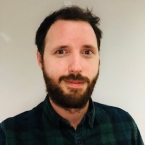I remember many moments working on an acute assessment unit where I met patients stuck in cycles of poor health. They'd come in with conditions that were, in many cases, preventable. And while I could treat their immediate symptoms, I often knew deep down that the care I was giving wouldn't lead to long-term improvement.
When we talk about the causes of poor health, the conversation often starts with behaviours and personal responsibility. And yes, there's something to be said about that—some people may not have the knowledge or motivation to make healthier choices. But lifestyle is just one small piece of the puzzle.
With the amount of health information available to us now, is it really fair—or accurate—to assume that the main thing people need is more “education” or “motivation”?
The truth is, our health is shaped by much more than individual choices. The wider determinants of health—things like housing quality, employment, education, income, the safety of our neighbourhoods, and even the policies we live under—have a massive influence on both physical and mental health.
Think about your local area: What services, spaces or businesses around you make it easier to adopt healthy living? What more could be done? How does it differ from other areas?
This is Public Health.
And it got me thinking: how can we build the kind of infrastructures, services, and policies that make being healthy not just possible, but easy? How do we create systems that protect people from harm before they ever need to walk into a hospital? In short—how do we build a Society of Health?
And so, 'Society of Health' was born. A podcast led by a nurse, but aimed at exploring the bigger picture of health looking into what helps or hinders us, outside of personal choices.
For this pilot, I wanted to ask these questions with groups that are more likely to face discrimination or disadvantage—those for whom the “personal accountability” narrative is often the strongest and most unfair. I wanted to this platform to shine a light on what’s holding these vulnerable people back, what support is available, and what more can be done.
It also felt right for a nurse to lead this conversation. Nurses serve a diverse set of people across all parts of the system—from hospitals to homes— from wealthy to deprived- from schools to workplaces, we’re already across the system so let us lead these conversations.
We also spend more time than almost anyone else listening to, caring for, and supporting people. That gives us unique insights into what’s stopping patients from achieving improved health outcomes.
Health isn't just about what happens in a clinic or hospital, or even a choice we’re able to make—it’s about the world we build around us.
Through Society of Health, I wanted to shine a light on the people, policies, and possibilities that could help us all live better, fairer, healthier lives.
My hope, is that nursing staff are able to explore with their patients what additional support they might need to achieve good health, and that they seek opportunities to signpost or influence their services to address these barriers and stop the cycle.


 Share on LinkedIn
Share on LinkedIn




